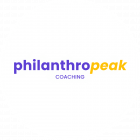You’ve probably asked yourself at least once:
“Why is it so hard to keep friendships going when I actually care so much?”
You’re not flaky.
You’re not selfish.
You’re not broken.
But if you’re living with ADHD, friendships can feel like emotional Jenga. One missed text. One impulsive comment. One mental shutdown—and boom, the tower’s wobbling again.
Let’s stop pretending this is about being bad at relationships.
It’s not a personality flaw. It’s brain wiring.
Once you understand how ADHD and friendships interact—both beautifully and messily—you’ll stop blaming yourself. And you’ll start building connection in a way that feels sustainable, not stressful.
Why ADHD Affects Friendships (And It’s Not a Character Issue)
First off—ADHD disrupts executive function. That’s your internal manager for social behaviour, focus, impulse control, and emotional regulation. All of these are essential for healthy friendships.
When executive function is lagging, even the simplest friendship tasks—texting back, remembering birthdays, staying present in a conversation—can feel like a full-time job.
It’s not that people with ADHD don’t care about friendships.
It’s that traditional expectations around friendship maintenance don’t match how ADHD brains operate.
So if you:
-
Constantly forget to reply
-
Overthink every message you send
-
Flake on plans because your nervous system shuts down
That doesn’t make you a bad friend. It just means ADHD and friendships require a more compassionate, customised approach.
ADHD and Friendships: Real-Life Struggles
Let’s break down what this looks like on the ground.
1. “I forgot to respond… again.”
Your friend sends a message. You read it. You think about replying. Then the dopamine slips away, and the thought disappears. Two weeks later, you remember—and now you’re spiralling with guilt.
2. “I said something weird. Now they hate me.”
Social rejection hits differently when you have ADHD. One awkward comment can replay in your head on loop. This is Rejection Sensitive Dysphoria (RSD) in action—and it often torpedoes otherwise healthy friendships.
3. “I want to show up, but I’m mentally done.”
Social burnout is real. Especially for ADHDers who mask or overcompensate. You love your friends—but some days, even the idea of replying to a text feels impossible.
All of this makes ADHD and friendships feel exhausting—even when you deeply crave connection.
Emotional Intensity: The Undercurrent of ADHD and Friendships
One reason ADHD makes friendships feel high-stakes? Emotional intensity.
People with ADHD often:
-
Feel more deeply
-
React more impulsively
-
Internalise social feedback faster
This can mean friendships feel amazing when they’re going well… but absolutely crushing when there’s tension, distance, or miscommunication.
The highs are high.
The lows are brutal.
And without support, that emotional whiplash can lead to avoidance or isolation.
If ADHD and friendships feel like an emotional rollercoaster, that’s not a defect—it’s neurobiology.
What Actually Works: Friendship Habits for ADHD Brains
The fix? Stop copying neurotypical friendship models and build something that works for how your brain functions.
🧠 External memory = your best friend
Don’t rely on remembering. Outsource it.
-
Calendar reminders to check in
-
Pin your closest friends in your messages app
-
Use voice notes when typing feels like too much
-
Sticky notes with prompts like “send meme to Jess”
This reduces shame and increases follow-through.
🤝 Anchor into “low-pressure” friendships
Not every connection needs weekly catch-ups. Some of the best ADHD and friendships happen in shared-interest groups where presence matters more than perfection.
-
Co-working sessions
-
Walking clubs
-
Gaming nights
-
Crafting groups
-
Online neurodivergent chats
These setups allow connection without social performance.
🔁 Share how your ADHD works
Your friends aren’t mind readers. Give them the cheat sheet.
“I go quiet sometimes, not because I don’t care—but because I hit decision fatigue. Please feel free to nudge me.”
When you name your patterns, you build trust. That’s the real glue in ADHD and friendships.
Boundaries = Connection, Not Rejection
One of the biggest myths in ADHD and friendships is that setting boundaries makes you cold or distant.
Here’s the truth: boundaries protect your ability to connect.
If you say yes to everything out of guilt, you’re going to show up exhausted, resentful, or distracted. That’s not real presence.
Try saying:
-
“Can we do a low-key hangout this time?”
-
“My week’s full—can we aim for next week?”
-
“Sometimes I flake when I’m overstimulated. I’ll always let you know if I need to shift things.”
Boundaries aren’t walls. They’re bridges. They let people meet you where you are—and that’s where real friendships grow.
Letting Go of Friendships Without Shame
Sometimes, the hardest part of ADHD and friendships is letting go.
Not every friendship will survive your evolution.
Not everyone will understand your wiring.
Not all connections are built for the long haul.
And that’s okay.
Letting go doesn’t mean you’re failing. It means you’re making room for relationships that are safe, spacious, and sustainable.
Here’s how to release without guilt:
-
Don’t ghost—just be honest about your capacity
-
Use closure messages if needed (“I appreciate what we shared, but I need space”)
-
Remind yourself: grief isn’t failure—it’s proof you cared
Your energy is limited. Spend it where you feel safe to be your full self.
How ADHD and Friendships Show Up in Business Too
Friendships don’t stop at personal life—they bleed into business.
If you’re an entrepreneur, ADHD affects:
-
Client relationships
-
Team dynamics
-
Collaborations and networking
-
Communication patterns
That’s why at PhilanthroPeak Coaching, we build systems that help ADHD entrepreneurs master executive function, productivity, and connection—without faking who they are.
Inside The ADHD Business Compass™, we address:
-
How to follow up without forgetting
-
How to navigate social energy slumps
-
How to manage boundaries with clients
-
How to lead without masking
Because ADHD and friendships matter in every part of life—including how you do business.
FAQ: ADHD and Friendships
❓ Why does ADHD make friendships feel so hard?
Because executive dysfunction, RSD, and emotional intensity all affect how we relate. The friendship “norms” most people follow don’t always work for ADHD brains—and that’s okay.
❓ Can I be a good friend even if I’m inconsistent?
Yes. Consistency doesn’t always mean frequency. It can mean being honest, present, and supportive in ways that work for your capacity.
❓ What’s the best way to explain my ADHD to a friend?
Use plain language and make it about connection, not excuses. Try:
“My brain works a bit differently, so I might need reminders—but I genuinely value our friendship.”
❓ How do I rebuild a friendship I ghosted?
Reach out with honesty:
“I’ve been struggling with my energy and lost track of time, but I’ve thought of you often. No pressure, but I’d love to reconnect.”
❓ Where can I meet people who understand ADHD and friendships?
Try:
-
Reddit ADHD communities
-
Discord servers for neurodivergent folks
-
Instagram/TikTok ADHD creators
-
ADHD co-working or coaching groups like PhilanthroPeak Coaching
ADHD and Friendships Can Work—You Just Need Your Own Rules
Let’s drop the guilt.
Let’s stop chasing friendship checklists that weren’t made for our wiring.
Let’s build friendships that fit real ADHD life—low pressure, emotionally honest, and built on shared understanding.
Whether you’re trying to reconnect with old friends, build new ones, or simply stop spiralling about your social patterns—know this:
You’re not too much.
You’re not broken.
You’re just wired for connection a little differently.
And once you start designing friendships for ADHD, instead of against it—you’ll realise how much beautiful connection was waiting for you all along.
Explore ADHD-friendly business, productivity, and self-leadership tools at PhilanthroPeak Coaching, or dive into the full 12-week experience inside The ADHD Business Compass™.
Because connection matters—in business, in life, and most of all, with yourself.



Comments are closed.